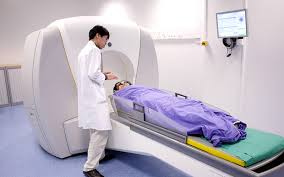Depression in Women with Breast Cancer
Depression in Women with Breast Cancer: The most talk about type of cancer

Depression in Women with Breast Cancer is realistic and must be addressed timely if we have to keep the beauty and health of our loved ones breast.
Of all the cancer types, breast cancer is the one most studied more so when it comes to the psychosocial effects. It therefore goes without mention that of all the studies done, most of them are focusing on women and breast cancer. This is what the experts at AWAREmed Health and Wellness Resource Center under the able leadership of doctor Dalal Akoury are going to help us understand. Remember that doctor Akoury is also the founder of this facility and ever since she has been of great help to many people across the globe. You can be among the many that have been treated and are now enjoying their lives to the fullest by seeking an audience with her today through a phone call and you will not regret it. In the meantime, let us settle into the discussion focusing on the depression in women with breast cancer.
Depression in Women with Breast Cancer: Longitudinal studies of depression in women with breast cancer
Like I had said before, this has become a great point of concern to researchers and a lot is being done in this direction. Like for instance and according to one of the prospective study where 160 women with breast cancer and were schedule for breast surgery, it was established that about 22% prevalence of depression in women who had a mastectomy for breast cancer. In relation to those with initial stages of cancer this prevalence was consistent for two years. During this period a 30% rate of anxiety in a study of 58 ambulatory women who were 5 years post treatment for breast cancer. Nonetheless women who had partial mastectomy followed by radiation had better body image but similar amount of anxiety and depression symptoms and fear of recurrence as did women who had modified radical mastectomy.
Depression in Women with Breast Cancer: Depression in breast cancer patients by surgical procedure
Of the many studies conducted, when the specialist were analyzing the various findings and in comparison with the psychological outcomes of the women undergoing different surgical procedures, it was established some low levels of depression but higher levels of anxiety in 133 ambulatory breast cancer patients receiving radiotherapy after mastectomy or lumpectomy. The end result of this study shows clear evidence that in a cutoff score of 10 on HADS only two mastectomy patients were considered significantly depressed. And on the other hand if a HADS cutoff score of 8 was applied, then 6.7% were depressed. In contrast, in a study of 123 women with breast cancer, there was a clear evidence of high prevalence of depression (50% in mastectomy, 50% in lumpectomy with radiation versus 41% in lumpectomy only). These high percentages may have resulted from a use of a self-report depression scale (Center for Epidemiology Self-report Depression Scale [CES-D]) rather than a DSM-IIIR criteria-based clinical interview.
Depression in Women with Breast Cancer: Prior History of Depression in Women with Breast Cancer
Few researchers have noted the time of onset of depression or correlated patients’ history of depression with current depression or functioning. Notably, researchers reported findings on a homogenous sample of 79 women evaluated with the Diagnostic Interview Schedule and CES-D 3–7 months after their diagnosis of breast cancer. Nearly 18% of this sample had a past or current history of depression according to DSM-IIIR criteria. Women with elevated depressive symptoms had more physical symptom distress and more impaired functioning than subjects with depressive disorders and without depression.
In a cross-sectional study of 303 relatively young (mean age 46 years) women with early (stage I or II) breast cancer at 3 months after breast surgery using the European Organization for Research and Treatment of Cancer Quality of Life Questionnaire and HADS, it was again established that a past history of depression was associated with depression. It was also noted that women with few psychological symptoms and good emotional adjustment to cancer may have refused participation in this study because these women were also being recruited into an intervention study.
Depression in Women with Breast Cancer: Hormones and Depression in Women with Breast Cancer
In one of the studies involving 257 women with lymph node-negative breast cancer, 155 of who were treated with tamoxifen and 102 who were not. On the basis of clinical interview, 15% of the tamoxifen-treated group had depression compared with 3% of those not taking tamoxifen. Of the 23 women with depression, eight had mild symptoms and no change in tamoxifen dose was made, eight had significant depression requiring a dose reduction to relieve symptoms, and seven had to discontinue tamoxifen secondary to depression.
Depression in Women with Breast Cancer: Prevalence of Depression in Women with Advanced Breast Cancer
Studies evaluating the correlation of depression with disease progression in women with breast cancer have shown inconsistent results. Experts have found less depression in women with advanced breast cancer (4.5%) than in those with recurrent disease (15%). Physical disability did not relate to emotional disturbance. And yet in another study experts reported that ambulatory advanced breast cancer patients had a 20% depression prevalence in one study and 9% depression in another. Still again other studies found a 32% prevalence of depression in 22 women with local recurrence comparable with rates found with mastectomy. And in yet another research experts found a 13% prevalence of depression in advanced breast cancer patients (N = 139); increased levels of depression were found in those with lowest socioeconomic status, poorest performance status, and closer proximity to death.
In view of all these studies, researches and their findings it is becoming clearer that depression in women with breast cancer is realistically a problem that we cannot just wish away. It will take a consolidated effort from all us (medical professionals, government authorities, the general public and all interested parties) to pool together in the fight against these life threatening conditions. On her part as a medical expert, doctor Akoury made a decision to create a medical center (AWAREmed Health and Wellness Resource Center) whose main objective is to transform each individual’s life through increasing awareness about health and wellness and by empowering individuals to find their own inner healing power. Dr. Akoury’s practice focuses on personalized medicine through healthy lifestyle choices that deal with primary prevention and underlying causes instead of patching up symptoms. I strongly believe that you want your life to be transformed for the best of the very best. If this describes your interest, then you can schedule for an appointment with doctor Akoury today and being the life transformation journey with the best in the medical practice.
Depression in Women with Breast Cancer: The most talk about type of cancer




